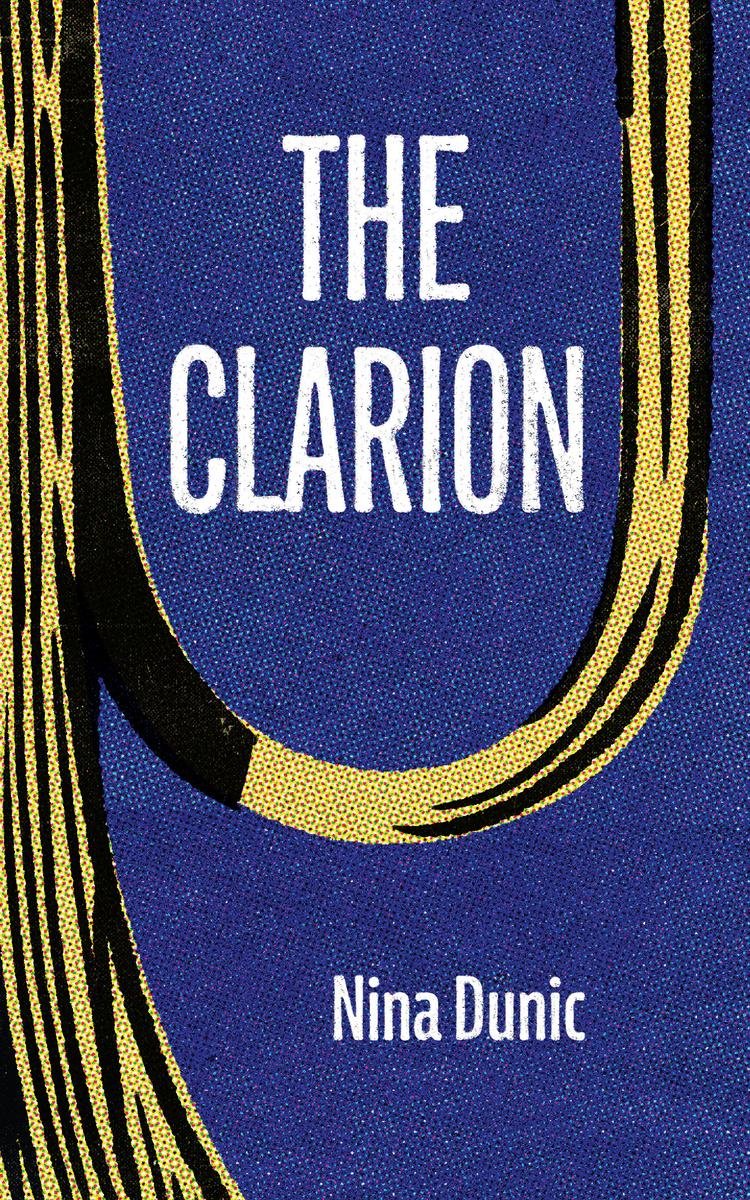From issue 3.4 April 2024 of Girls to the Front!
A mini-review and “How I Wrote This” for Nina Dunic’s The Clarion
I’ve been recommending the Giller-longlisted novel, The Clarion, to anyone who comes into Munro’s Books asking what the last book I read and loved was. I warn them it’s a quiet novel, because I know that’s not for everyone. This is not a wild, plot-driven ride. This book alternates between Peter and his sister Anastasia, or Stasi’s voices, and follows them through a few weeks of their lives. Peter works in a kitchen and is a fairly unmotivated trumpet player and Stasi has spent her life climbing the corporate ladder, but after a blow at work is now beginning to question her choices. But don’t worry too much about what’s happening on the surface of this novel. The joy lies underneath, in Peter and Stasi’s thoughts about the mundane events we join them in, the world we live in with them. For instance: “performance had shown up everywhere else in our lives and it just made everything lonelier. That was something I could never describe to Stasi about being online, how crowded and isolating it was, performing life instead of living it—the repetitive grief of ever actually knowing anyone in real life because they were never who they said they were. The smell of sweat. Everyone trying. Everyone watching, everyone wincing against strange, secret hurts.” This book is slow and careful and psychologically deep. Reading it will make you feel more profoundly human.
My best days for writing were Wednesdays and Sundays.
I would spend Wednesday nights in the front room with our record player, playing music loud, drinking wine and smoking small pinches of weed. This was my highest volume of writing and also the loosest. Between my first and second glass of wine, and one sip on the pipe, passages and scenes would just rush out of me. The sheer volume of raw material was a gift. By the third glass of wine however, I'm enjoying the music too much and writing a bit less. I eventually get bored of writing and go eat a big meal, usually a pile of slow-baked, saucy chicken wings. For this reason, Wednesday nights were called WWWW at our house: wine, weed, writing and wings. If it was warm out, instead of the front room, I would write on the porch with headphones.
Sundays are quiet, I'm not getting emails, just sitting to write between rounds of laundry. Loud music again, but just tea to drink. I'm usually in the living room at the table, beside the big window. Unfortunately I don’t have a view, just a tall wooden fence and a bit of sky above it.
But the physical act of pushing keys is such a small part of what I consider “writing.”
For me, the most important part is when my characters feel real to me, when I think about them every day, while I am doing other things, while waiting for a bus, or the kettle to boil. I’ll wonder what they would be doing now, or maybe imagine a childhood memory, or some minor detail about their life, or an interesting gesture, or the way they looked away when you asked them something. I don’t think about plot or action, I’m just always thinking about the person, as real as anyone in my life.
Sitting down to write is when I confront the plot. Where are they? Who else is there? What do they say? What happens? And that is live on the page, instinctive. My hope is that I’ve invested so much into my characters at that point that everything feels natural and true.
Nina Dunic was born in Belgrade and brought to Toronto as an infant. Grew up in Scarborough and Pickering, attended the University of Toronto, graduated from Centennial College for journalism. After the first Star contest win, she received a free mentorship from the Humber School for Writers — she is grateful for that opportunity.
She is also a freelance journalist — bylines include The Canadian Press, CBC, Toronto Star, Storeys.com, and The Globe and Mail, among others.
Nina wandered in and out of various careers before starting fiction. She’s now living in Scarborough again.


